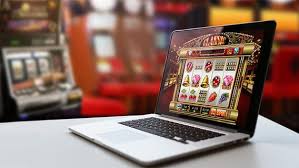
How Blockchain Is Revolutionizing Mobile
In recent years, the emergence of blockchain technology has sparked a wave of innovation across various industries. One of the most exciting sectors experiencing this transformation is mobile technology. As mobile devices become ubiquitous, integrating blockchain can indeed bring an array of benefits, from enhanced security to more efficient transactions. Blockchain’s decentralized nature can potentially revolutionize how we interact with mobile applications, making it a hot topic among developers and entrepreneurs alike. The possibilities are immense, and their growth seems unmanageable. More information can be found here: How Blockchain Is Revolutionizing Mobile Casinos in Bangladesh bet9ja shop.com.
The Importance of Security in Mobile Technology
Security is a paramount concern in the mobile industry, with users increasingly wary of data breaches and unauthorized access. Traditional mobile applications often rely on centralized servers, which can be vulnerable to attacks. Blockchain, on the other hand, offers a decentralized approach to data storage and management. By distributing data across a network of computers, blockchain can significantly mitigate the risk of hacking and unauthorized access.
Mobile applications built on blockchain can provide users with a higher level of security. Transactions can be encrypted and confirmed by multiple nodes within the blockchain network, ensuring that data remains secure and tamper-proof. For instance, financial applications and wallets built on blockchain can enhance user confidence by guaranteeing that their transactions are secure and transparent.
Enhancing User Privacy
In today’s digital age, users are increasingly aware of their privacy and data ownership. Blockchain technology allows users to have greater control over their personal information. With traditional applications, data is typically stored on a central server, and users often have little control over how their data is used or shared.
Blockchain can enable self-sovereign identity (SSI) solutions, which allow users to manage their identity in a decentralized manner. This means that users can choose when and how to share their information, granting access to specific data only when necessary. Such an approach not only protects user privacy but also enhances their autonomy over personal data.
Improving Transactions with Smart Contracts
Smart contracts, a feature of blockchain technology, automate and enforce agreements without the need for intermediaries. This can be particularly beneficial for mobile applications that require transaction processing, such as e-commerce or peer-to-peer services.
Through smart contracts, processes can be executed automatically once certain conditions are met, enabling faster and more efficient transactions. For example, in a ride-sharing application, a smart contract can automatically calculate fares and transfer payments once a ride is completed, reducing the need for manual intervention and minimizing disputes.
Streamlining Mobile App Development
Building mobile applications can often involve complex processes and multiple stakeholders. The decentralized and transparent nature of blockchain can aid developers in streamlining app development by reducing complexities related to trust and security.
Furthermore, blockchain can facilitate the creation of decentralized applications (dApps) that operate on a peer-to-peer network. This can eliminate reliance on central servers and reduce costs associated with hosting and maintaining applications, allowing developers to focus on enhancing user experience.

Use Cases for Blockchain in Mobile Technology
Various industries are beginning to adopt blockchain technology to enhance their mobile offerings. In the finance sector, mobile banking applications are integrating blockchain to facilitate secure peer-to-peer transactions. This not only reduces transaction costs but also increases transaction speeds, offering users a superior banking experience.
In the gaming industry, blockchain enables true ownership of in-game assets through cryptocurrency and NFTs (non-fungible tokens). Players can trade, sell, or even create their in-game assets, transforming the gaming experience and providing new revenue models for developers.
Moreover, the health industry focuses on using blockchain for mobile applications to securely manage and share patient data among healthcare providers. This ensures data integrity and improves the efficiency of patient interactions across various platforms.
The Future of Mobile and Blockchain
The intersection of mobile and blockchain technology is promising, with many experts predicting that this integration could redefine mobile experiences in the next few years. As smartphone adoption continues to grow globally, the demand for secure, efficient mobile solutions will also rise. Blockchain can lead this evolution by providing the necessary infrastructure to ensure that mobile transactions are secure, trustworthy, and efficient.
Furthermore, as organizations and developers continue exploring innovative use cases for decentralized applications, we can expect to see a proliferation of mobile apps that harness the benefits of blockchain, driving user engagement and trust.
Challenges Ahead
Despite the immense potential, challenges remain in the way of widespread blockchain adoption in mobile technology. Scalability concerns, energy consumption, and regulatory uncertainties are just a few of the hurdles that need to be addressed to facilitate effective integration.
Developers will need to find ways to build blockchain applications that can process high volumes of transactions quickly and efficiently while minimizing environmental impacts. Additionally, regulatory frameworks will need to evolve to address the unique characteristics of blockchain technology and protect consumers without stifling innovation.
Conclusion
As blockchain continues to make inroads into the mobile technology landscape, it promises to usher in a new era of secure, efficient, and user-centric applications. The marriage of these two technologies has the potential to reshape interactions, enhance user privacy, and create new business models, fundamentally changing how we utilize mobile devices.
In summary, blockchain is more than just a buzzword; it’s a transformative technology that is revolutionizing mobile. Armed with improved security, privacy, and efficiency, the future of mobile technology is indeed bright, and its trajectory is one to watch closely.
